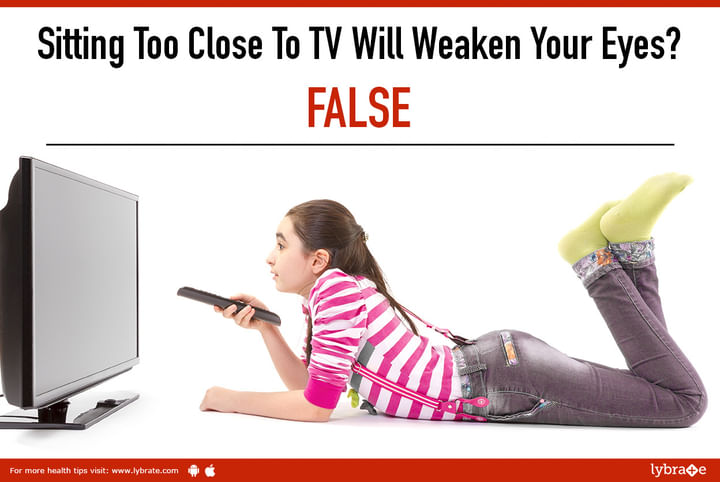Sitting Too Close To TV Will Weaken Your Eyes? FALSE.
5 myths about eye health and the real facts behind them
Your eyes are an important part of your health. There are many things you can do to keep them healthy and make sure you are seeing your best. However, there are a number of myths regarding what you should do and what you shouldn't do when it comes to maintaining good eye health.
Here are 5 of those myths busted:
Myth #1: reading in dim light and sitting too close to the tv hurts your eyes
Fact: sitting too close to the tv, you may feel eye strain or get a headache from reading in the dark, but it will not weaken your eyes. It fatigues your eyes but does not harm your eye health in any way.
Myth #2: eating carrots will improve your vision
Fact: carrots are rich in vitamin a, a nutrient essential for good vision. But eating carrots will only provide a small amount of vitamin a. To get the optimum amount, you need to include other sources of vitamin a in your diet as well, some of which are milk, cheese, egg yolk and liver. Spinach is best for eye health. It has lutein and zeaxanthin, both of which can help prevent cataracts.
Myth #3: if you wear glasses or contacts for a continuous period, your eyes will weaken
Fact: your eyes will not grow weaker by using corrective lenses. The prescription may change over time due to aging or absence of disease but it has nothing to do with your current prescription. Some children have correctable eye problems that do require glasses to improve the condition.
Myth #4: when you get something in your eye, rub it out
Fact: this is not true for everything that gets in your eyes. If any particle falls in your eyes dust it off. But if it is sand and small debris that gets in your eye, don't touch it. Use an eye wash for flushing it out. If an object gets stuck in your eye, don't remove it or rub your eye constantly. Visit a doctor at the earliest because some serious injuries may seem minor at first.
Myth #5: dark sunglasses can protect your eyes from the sun
Fact: the color of sunglass does not ensure eye protection. Look for sunglasses that block both uva and UVB rays. Exposure to the UV-rays of sunlight can have cumulative effects on your eyes. It increases your risk for cataracts, solar retinitis, and age-related vision loss. Even if your contacts have UV protection, wear sunglasses that block 100% of uva and UVB rays for full protection.
'consult'.
Related Tip: Here's What CRYING Does to Your Body



+1.svg)
